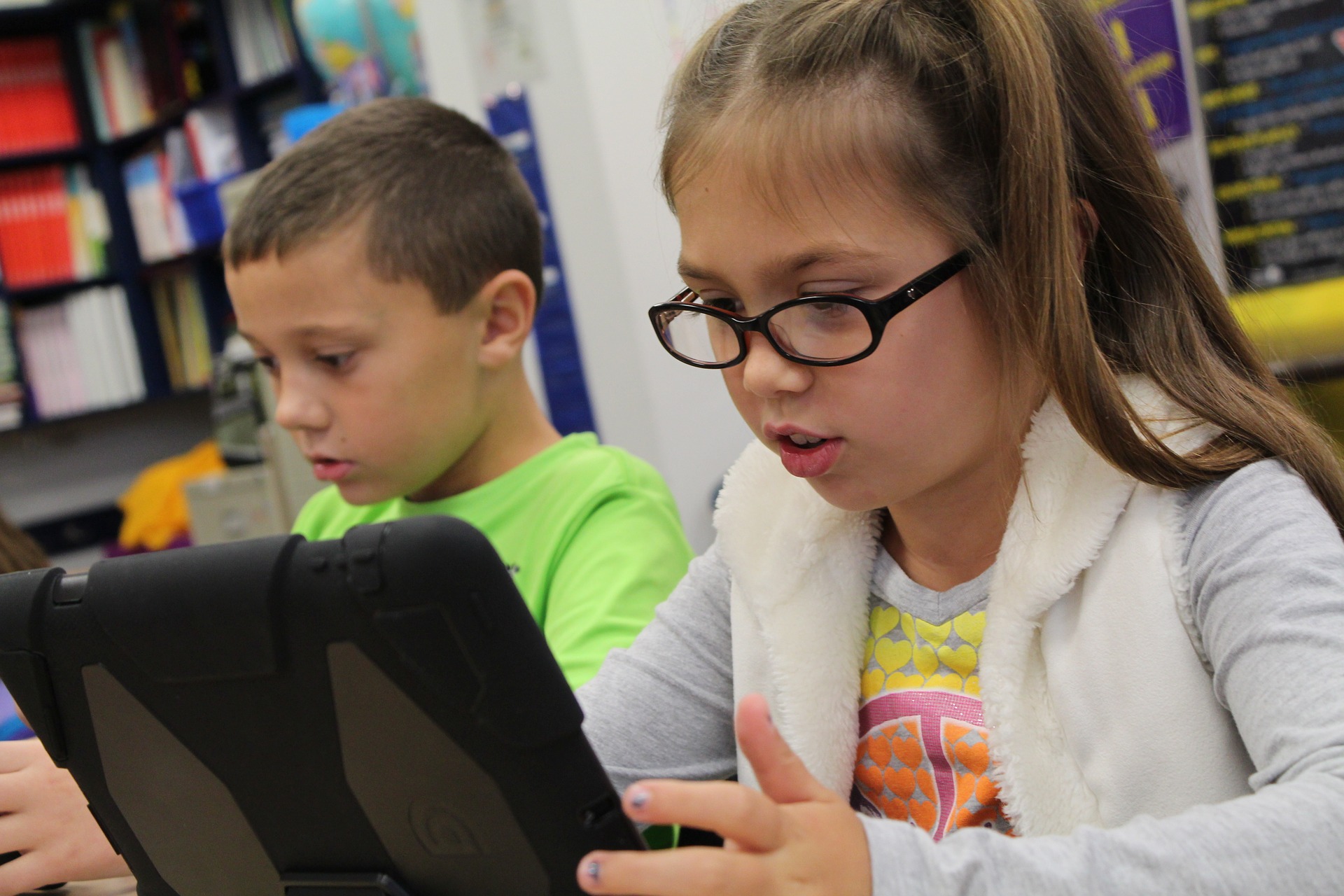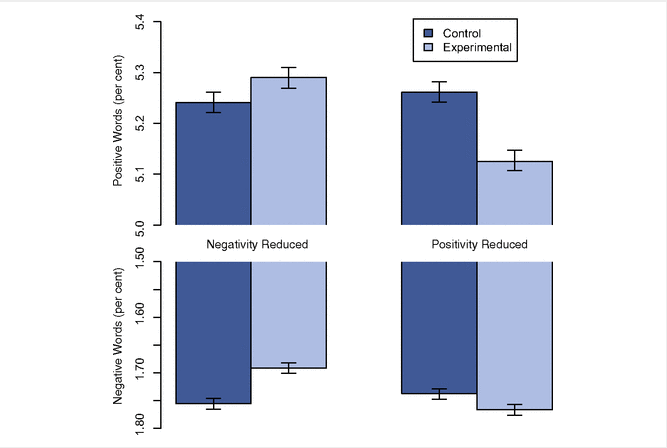The digital world
ATL: Essential understandings
1. Research on the effects of technology is relatively new and not yet highly reliable.
2. Interacting with the digital environment has both positive and negative effects on our cognitive processes.
 According to the UK's Office of Communications (2015), young people between the ages of 16 and 24 spend more than 27 hours a week on the Internet. The average adult spends more than 20 hours online a week, which includes time spent on the Internet at work.
According to the UK's Office of Communications (2015), young people between the ages of 16 and 24 spend more than 27 hours a week on the Internet. The average adult spends more than 20 hours online a week, which includes time spent on the Internet at work.
More and more, technology is an essential part of classrooms around the globe - let it be one-to-one laptop programs, use of mobile devices, Skype conversations between schools around the world, or digital textbooks (like the one that you are reading). Programs like the Khan Academy have made personalized learning possible - that is, students are able to learn at their own pace by interacting with an online app.
The question psychologists want to answer is - is this good for us?
Although computers and the Internet have been around for some time, it is only now that we are beginning to see what we believe may be the effects of living so much of our lives in the digital world. In the past few years, we have seen the following headlines:
- If you are going to take notes, do it by hand!
- New study links Facebook to depression
- In our digital world, are young people losing the ability to read emotions?
- Internet use may harm teen health: Scientists find that heavy Internet use puts teens at risk for high blood pressure
It does seem like a lot of the news is negative. But there is good news as well.
- Gaming improves multi-tasking skills (
- Research shows that video-game play improves basic mental abilities
- Social media can actually help teens suffering from depression and anxiety
Regardless of whether you agree or disagree with the headlines above, there is one fundamental problem: Most of the research on the effects of technology has not been replicated. The question of how we can effectively investigate the effect of technology on our cognition is a complicated one. And as you can probably guess, there is a lot of researcher bias on both sides of the aisle.
ATL: Thinking critically
Choose one of the headlines above and read the article that it links to. Prepare a short presentation where you summarize the article for your class. When summarizing it, consider the following questions:
- Do you find the conclusions credible? Why or why not?
- What would you have to consider if you replicated the study in your own community?
- What are the potential implications of the research?
There is a range of studies listed for students to choose from. The students' evaluations should be based on the aim, procedure, and findings of the studies. Below is a list of things to consider when discussing each of the questions above.
1. When looking at whether the conclusions are credible, the students should consider a few factors. Is the sample representative of the group that is being studied? Do they agree with how the variables are defined? For example, when looking at "depression and social media use," how is it determined that a social media user is "depressed?" Is that an acceptable measure?
2. When looking at the question of replication, which aspects of the study would need to be kept constant - and which could be changed? For example, if you are giving people a set of trivia statements to remember, do you have to use the same list? Why or why not?
3. How could we use this research? Should it make a difference at the individual level - for example, how a student may approach their own use of social media? What about at the societal level? Should this influence how schools are run? Should public health campaigns address the issues? Should the government create restrictions to protect people from the negative effects of technology? Or should the government encourage certain behaviour in order to benefit from frequent tech use?
Research in psychology: Mueller and Oppenheimer (2014)
 Taking notes on laptops rather than taking notes by hand is increasingly common. Today it is normal to see lecture halls full of students tapping away.
Taking notes on laptops rather than taking notes by hand is increasingly common. Today it is normal to see lecture halls full of students tapping away.
A study by Mueller and Oppenheimer (2014) suggests that using laptops - or other devices - to take notes may actually hinder learning. Their argument is that when we take notes by hand, we cannot write fast enough to "keep up" with the professor; as a result, we have to process information and put what the professor says into our own words in order to get it on paper. This processing helps the learning process better than taking notes on the computer, regardless of how "complete" those computer notes may be.
To test their theory, the researchers used a volunteer sample of 109 UCLA undergraduate students, 27 of which were male.
Participants were given either a laptop or pen and paper and were instructed to take notes on a series of four lectures. The lectures were films of a graduate student reading from a teleprompter. The lectures had the following themes: bats, bread, vaccines, and respiration.
Participants were told that they would be tested in one week on the content of the lectures - and they would not be allowed to take their notes home with them. Each participant watched the lecture on a private monitor with headphones in order to avoid any distractions.
The two conditions - handwriting and laptop note-taking - were then randomly divided into two more conditions. In the "study" condition, the participants were given 10 minutes to study their notes before being tested. In the "no-study" condition, the participants were immediately tested without a chance to review their notes. There were 40 questions - 10 for each lecture. The questions were categorized by the researchers into "factual" questions and "conceptual" questions.
Here are their results. What conclusions can you draw from the means and standard deviations listed below?

Questions to consider
1. The study went viral on the Internet when it was published. Do you think that this is a good study? Why or why not?
2. What other options are there for learning from lectures besides simply taking notes by hand or on a laptop? How would you design a study to demonstrate that this alternative method is a more effective learning strategy?
1. The study went viral on the Internet when it was published. Do you think that this is a good study? Why or why not?
As always, when students discuss whether a study is "good" or not - they should generate criteria for making this decision. How do they know that a study is good? The study has a few inherent flaws. The fact that the sample was all made up of undergraduates means that they may not have a lot of experience with note-taking from lectures. In addition, there may be a gender bias in the findings. In addition, listening to lectures where there will be no actual assessment and for which you didn't choose the topic is a rather artificial experience. The study is highly controlled, so cause and effect can be established, but at the same time, ecological validity is low.
2. What other options are there for learning from lectures besides simply taking notes by hand or on a laptop? How would you design a study to demonstrate that this alternative method is a more effective learning strategy?
There is a lot of debate about whether taking notes by hand is better than taking notes on a laptop. Of course, the question is - what does "better" mean? Students may propose other ways of taking notes and how they would test the effectiveness of such strategies. For example, what if the teacher gives all the notes in advance? What if the teacher gives students an interactive scaffold - either on paper or on the computer - to fill in during a lecture?
Ethics and Internet research: ‘That’ Facebook Experiment . . .
The study by Mueller and Oppenheimer used an experimental design and a volunteer sample. But as you can see, it was not very natural. The lectures were disconnected from the interests of the students, the participants were questioned a week later without being allowed to access their notes, and the trivia-style questions that were asked all made for a rather artificial experiment. Field studies are also being used in psychology to study the effect of technology on our cognitive processes.. However, attempts to avoid demand characteristics by carrying out field experiments have raised serious ethical concerns with regard to informed consent.
Interest in how we study the impact of the digital world on the way we think, the decisions we make, and our emotional state intensified following the publication of a study often referred to as a ‘secret experiment’ conducted by Facebook.
Many people were angry that the study (Kramer et al, (2014)) had manipulated the information they received in their Facebook feed in order to test how this slight manipulation might affect them emotionally. Despite widespread and high-profile criticism, Kramer responded with a passionate defense of the study.
This research raises important questions about the way in which research should be conducted as well as the extent to which corporations should be bound by the same rules as academics. The study was conducted as part of an internal investigation within Facebook, thereby falling beyond the scope of the ethics committee at the relevant university. Facebook confirmed that the manipulation fell within their own Data Use Policy. It is worth considering the fact that everything that appears in your Facebook feed does so.
Ethics in psychology: Kramer et al (2014)
Kramer et al (2014) wanted to test the idea that information in an individual’s Facebook feed could cause emotional contagion - that is, the transfer of emotional states from one person to another. Emotional contagion is well established as something which can happen in face-to-face interaction and it seemed clear that this could also occur in response to the information we see on our Facebook feed.
To test this possibility the research team collaborated with Facebook to alter the content of the news feed seen by 689,003 Facebook users. The research used an existing Facebook algorithm and a software system to identify posts containing positive and negative words. For some participants between 10% and 90% of the ‘positive’ posts (posts containing one or more positive words) of their friends were omitted from their feed. For other participants, 10% to 90% of the negative posts of their friends were omitted. A control group for each condition was also assessed, where a proportion of their feed was omitted at random. Importantly, researchers never viewed or altered any posts manually; this was all done automatically by algorithms. The words used by participants in their own posts were analyzed during the week of the experimental manipulation and the percentage of positive and negative words used in these posts was recorded.

As expected, when participants had the positive content of their news feed reduced, they were less likely to use positive language in their own posts.
Also as expected, when participants had the negative content of their news feed reduced, they were less likely to use negative language in their own posts.
Kramer et al concluded that the emotional content to which we are exposed through our Facebook feed does indeed affect our own emotional state; when we see fewer positive posts we are less likely to post positive events or positive opinions of our own.
Thinking critically
Do you think that this is an ethical approach to research? Why or why not?
Please note - emotion is not an example of a cognitive process. This study is included to encourage thinking about ethics.
Do you think that this is an ethical approach to research? Why or why not?
Students may have a range of arguments for this question. On the one hand, Facebook was carrying out research that could support the claim that the use of social media can have a negative effect on the mental health of its users. In order to investigate this claim, researchers need to try to avoid demand characteristics. The covert nature of this study is a strong control against demand characteristics.
However, the fact that the participants' social media was manipulated means that there was an invasion of their privacy. It was done by an algorithm, so their individual feeds were not read, but there is still the sense that their private world was not respected.
A discussion could be - how should Facebook have carried out this research? A potential way was to have participants volunteer to be in a study of mental health. They would be told that Facebook would be looking at algorithms of their social media use for a period of up to one month over the course of the next year. They would give consent, but not be informed of when (and if) they are actually being studied, nor the exact nature of the study. In addition, some participants would be used as a control group - potentially thinking that their feed is being monitored, but it is actually not.
The manipulation of the news feed was done remotely and without any direct involvement of any researchers or Facebook staff. All participants were still able to see all posts if they took the time to view their friend’s ‘wall’. Kramer has argued that the research was important given the scale and intensity of social media use, especially Facebook. However, as none of the participants were aware of any manipulation, there is little reason to suppose they would do so. Kramer argues that the benefit of such research outweighs the costs of failing to provide any form of consent.
Survey research
Much research into the way we are affected by the digital world has been conducted using survey data, often collected online. This method has several benefits, most notably the absence of any significant ethical concerns as participants are often fully informed or are at least provided with a full debrief and the right to withdraw their data if they are unhappy when the study is completed. However, research conducted with surveys consistently raises concerns in terms of both internal and external validity.
One limitation is the social desirability effect. Even when survey data is collected anonymously it remains true that many participants will be reluctant to provide any information about themselves which could be negatively judged. For example, participants may feel that is not socially desirable to spend too much time online and may, therefore, underestimate the average time they spend in online activity. It is also likely that people are unwilling to honestly describe what they are doing when they are online; the use of pornography and online gambling is certainly likely to be under-represented in any survey seeking to measure Internet use!
Another limitation is sampling bias. Surveys are often sent out or made available to very large numbers of people on the assumption that only some of them will choose to respond. This is very sensible from a practical point of view, (especially if surveys can be distributed without cost by electronic means) but it can reduce the population validity of the research. We might consider why some people would take part in a survey about social media while other people choose not to do so. For example, is it likely that those taking part have a particular interest in social media (or a particular aversion to it)? In either case, this may make it difficult to generalize results to a wider population.
Checking for understanding
What research method was used by Mueller and Oppenheimer (2014) to test their hypothesis that taking notes by hand would be better than taking notes on a laptop?
In this experiment, the researcher clearly manipulates an independent variable - whether participants used a laptop or not. So, it is not a quasi or natural experiment. The study is done in two parts, but this is not a repeated measures design because each group only experiences one level of the independent variable.
Which of the following is a correct statement of the conclusions of the Mueller and Oppenheimer (2014) study?
Which of the following statements is true about field experiments?
In the description of Kramer et al's (2014) Facebook study, why does it say "Importantly, researchers never viewed or altered any posts manually?"

 IB Docs (2) Team
IB Docs (2) Team
